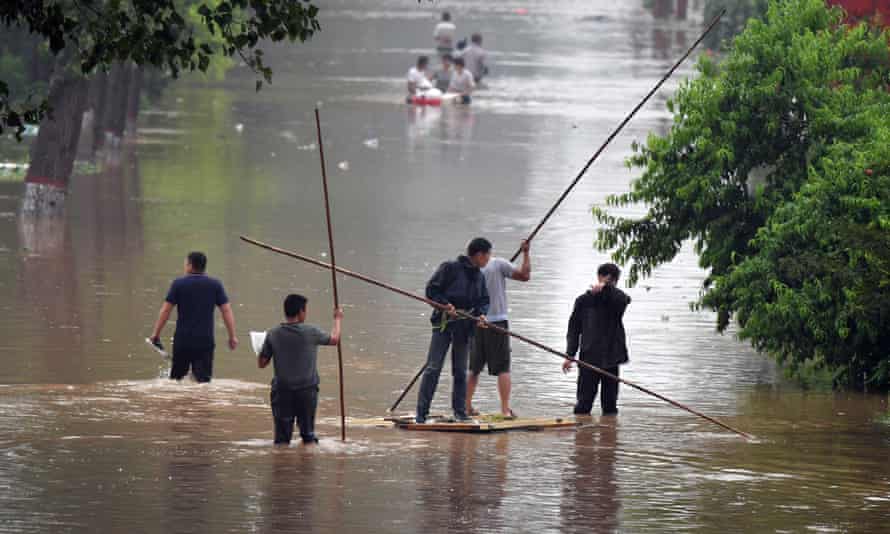

Last year too China was swept by heavy floods
The devastating floods in China will add to its economic woes making recovery tougher. The world’s second largest economy is already battling an acute economic slowdown. The economic loss—direct and indirect owing to the floods could well be more than $15 billion.
According to Voice of America (VOA), the flooding in Beijing, which received the worst rains in 140 years and surrounding provinces is expected to take a toll on China’s already sputtering economy, leaving financially strapped local and regional governments struggling for resources to repair the damage.
Even as floods have become a recurring phenomenon in China, the authorities are yet to take adequate measures to address the situation. “It’s not because the Chinese government doesn’t want to invest in relief and reconstruction. It’s because it doesn’t have the money,” He-Ling Shi, associate professor at the Department of Economics at Monash University, Melbourne, told VOA.
That apart, an audit report has now shown that a whopping amount of 10 billion yuan — $1.4 billion of the total reconstruction fund, has been misused by government officials. This has led to slowing down of people’s contribution this time.
In 2021, Zurich-based reinsurer Swiss Re estimated the country’s losses arising out of floods at $25 billion.
The floods have also led to closure of factories, the worst impacted are the micro, small and medium enterprises.
In July, China’s exports dropped to 14.5 per cent. China’s factory output remained in the red for the fourth straight month in July. For July the manufacturing purchasing managers’ index (PMI) — a key measure of factory output — stood at 49.3. Though it is an improvement over 49 in June, it reflects a contraction. Any reading below 50 is considered contraction.
“The situation may further deteriorate as the real economic impact of the floods will be felt in the coming weeks,” a person who has business dealings in China said.
Hong Kong-based South China Morning Post in a report admitted that the “catastrophic flooding has dealt China another blow at a time when it is going all out to revitalise a sluggish post-Covid economy, while risks such as high youth unemployment and an uncertain external environment pose threats to that much-cherished stability.”
The successive floods that have been hitting the country for the last few years have also raised concerns over food security.
According to the East Asia Forum, extreme rainfall in China has reduced the country’s rice yields by 8 per cent over the past two decades. Extreme weather such as drought and floods have become major threats to China’s agricultural and food supplies. Over the past 70 years, China’s average temperature has risen faster than the global average, making the country extremely vulnerable to floods, droughts and typhoons.
Also read: Why is China not publishing unemployment data, despite risking global investments?
Amjad Ayub Mirza, a political activist from Pakistan-occupied Jammu and Kashmir (PoJK) currently based in…
Following Tuesday's terror attack in Pahalgam that had left Kashmir Valley in deep mourning and…
Prime Minister Narendra Modi's visit to Jeddah saw the signing of several MoUs in various…
India and the US have finalised terms of reference for the ongoing negotiations for completing…
Moments after his arrival in Delhi early Wednesday, Prime Minister Narendra Modi took a briefing…
World leaders strongly condemned the dastardly terror attack on tourists in Pahalgam in Jammu and…